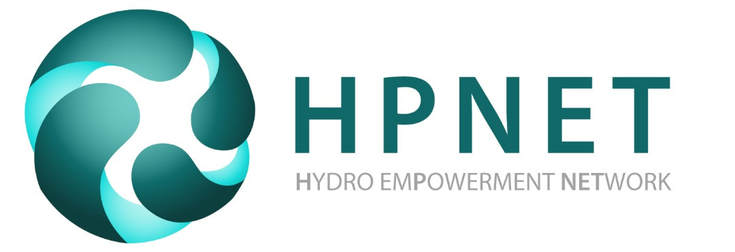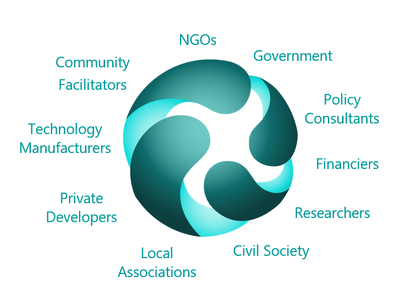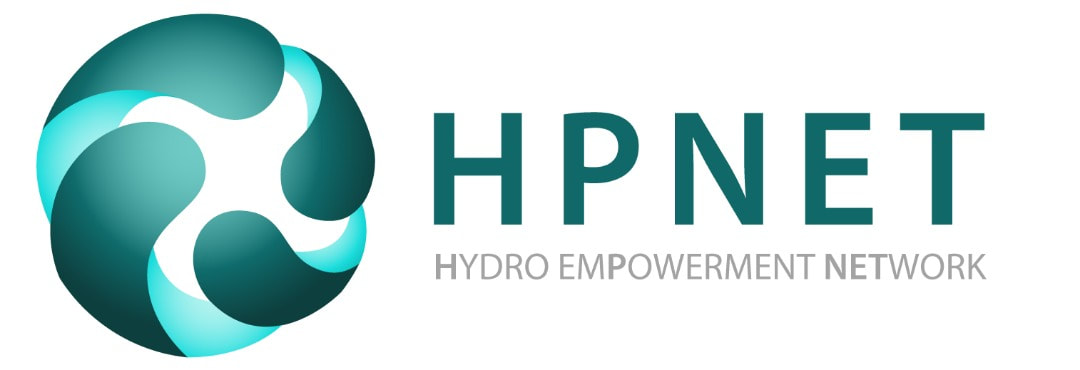Accelerating Financially Viable Hydro Mini-Grids: A Closer Look at Small-Scale Hydropower in S/SE Asia
From 12:45 to 14:00 on November 1 at Level 4 of the Sands Expo and Convention Centre, Singapore. For more details, contact us here.
Why Small-Scale Hydropower?
Where resources exist, small-scale hydropower produces the lowest cost energy. This allows affordable tariffs and sustains large numbers of productive uses. Micro-hydropower makes up by far the largest number of existing renewable energy mini-grids. Despite the current focus on mini-grids to provide electricity access to off-grid populations, little attention has been paid to how the numbers of hydro mini-grids can be financed, how donor and government support can be mobilized to support them, and which ownership models result in the highest adoption of productive uses.
Technology differentiation is critical to designing financially viable mini-grids. Each technology differs in cost per kW, LCOE, O/M costs, local employment generation, local manufacturing, and productive end use viability. Because small-scale hydropower has advantages in these aspects, there are projects where revenue generation has addressed capex (i.e. no grants or subsidies used for capital costs), O/M costs, and in some cases also a social fund for beneficiaries. In studying these projects, HPNET has observed that financially viable hydro mini-grids rely on partnerships between consumers and the local private sector to achieve:
- Ownership structures that can access local financing
- Extensive integration of productive end use
- Long-term sustainability models for O/M, repairs, and local governance.
A Closer Look: Financially Viable Community Hydropower
With a focus on projects below 1MW, HPNET has also observed that projects which are financed with credit do not face the typical pitfalls experienced by grant- or subsidy-funded projects, e.g. competent management, challenges to productive end use, long-term technical reliability, and funds for post-commissioning O/M and repairs. HPNET now seeks to accelerate the replication of commercially operated, financially viable hydro mini-grids financed by credit.
Our panel of senior experts of the sector will answer the following, using cases from South and Southeast Asia and Africa.
- What are examples of financially viable hydro mini-grids, e.g. locations, kW, households, etc.?
- What types of ownership and partnership models exist between local private developers and consumers, e.g. community-owned, cooperative-owned developer-owned, and hybrid models?
- How was financial and economic viability achieved in these mini-grid projects?
- Role of local manufacturing and local skills development
- Design of productive end use applications
- Design of connection fees and tariffs for residential and productive end use consumers
- Phase-wise kW-capacity development (e.g. 30kW to 80kW to 300kW)
- What are continued challenges and risks to sustainability? What are optimal solutions?
- Arrival of the main grid and feeding into the grid of cooperative-owned projects
- Financing for next phase kW-capacity and for increased productive end use applications
- What are challenges and solutions to scaling existing models of financially viable hydro mini-grids?
- Financing aspects: interest rates, collateral, loan tenors, types and awareness of financiers.
- National electrification policies: barriers for local private sector and local level energy planning.
- Capacity building aspects: accelerating awareness of development partners and consumers.
- What are challenges and solutions to transitioning from grant/subsidy models to financed models? What are optimal uses of subsidies and grants?
Panelists
In order of presentation
DR. BINU PARTHAN
Dr. Binu Parthan is the principal at Sustainable Energy Associates (SEA), a global consulting and advisory company, and has over 20 years of professional experience in financing, policy and technology aspects of clean energy and climate change. Prior to SEA, he was the Deputy Director General for the Renewable Energy and Energy Efficiency Partnership (REEEP) and also the executive director of IT Power India where he led the energy and environment practice. His professional experience covers 18 developing countries including countries in Asia and Africa. Parthan holds a Doctorate in Electrical Engineering (Low-carbon Energy) from the Technical University of Graz and Master degrees in Renewable Energy from University of Oldenburg and Industrial-Mechanical engineering from National Institute of Technology Calicut.
BIR BAHADUR GHALE
Bir Bahadur Ghale, the founder of Hydro Energy Concern Pvt. Ltd., has more than 25 years of experience in the micro/mini hydropower sector. He has also been awarded the Ashoka Fellowship (given to those who have excelled in Social Entrepreneurship). As a micro-hydro entrepreneur, he started his first Micro Hydropower (MHP) plant in Barpak (Gorkha) which generated 130kW of electricity. After his first project in Barpak, he started promoting awareness and social benefits of hydropower systems and so far, his contribution has electrified more than 4000 household. He also established the Hydro Energy Concern Pvt. Ltd. (HEC) in 1995 with an aim to contribute towards the private sector capacity in micro, mini and small hydropower projects. HEC believes that the economic and social development as well as the low environmental impact related to MHP represent the three inseparable pillars of sustainable development of Nepal, confirming that MHP can serve as an energy source for sustainable development.
DIPTI VAGHELA
Dipti Vaghela is the Network Facilitator and Manager of the Hydro Empowerment Network (HPNET), a knowledge exchange platform to advance policy, technology, and socio-environmental aspects of small-scale hydropower. She has fifteen years of experience in developing decentralized renewable energy (DRE) solutions for rural electrification in S/SE Asia, bridging communities, local entrepreneurs, field-based NGOs, policy makers, and funding agencies. For eight years she worked with indigenous communities in Odisha, India to establish localized energy solutions. In 2016 she was a Fulbright Public Policy Fellow placed at the Renewable Energy Association of Myanmar (REAM). Based in Myanmar, she supports and learns from Myanmar’s micro/mini hydropower and biomass gasifier mini-grid developers. She holds a B.S. in Mechanical Engineering from the University of California, Berkeley and a M.S. in Environmental Studies from San Jose State University.
BIKASH PANDEY
Bikash Pandey is Director of Clean Energy at Winrock International. Winrock’s energy programs bring access to energy for the poor and increase clean electricity on the grid. Modern energy services are used to expand economic opportunity in rural areas and improve health care, education and living standards. Pandey’s work experience encompasses 30 years in policy review, design and implementation of a range of clean/renewable energy projects in Africa, Latin America and Asia. A technical specialist in micro- and mini-hydropower systems, he has designed and implemented numerous community-based electrification, clean transportation projects, small-scale mini-grids, and home energy systems. He has extensive experience in developing small-scale renewable energy projects as activities under the Clean Development Mechanism. He also brings experience encouraging policy change within governments, bilateral and multilateral donors to support clean energy. He holds a master’s in energy and resources from the University of California at Berkeley, and a bachelor’s in electrical engineering from MIT.
KAPILA SUBASINGHE
Mr. Kapila Subasinghe is Vice President of Specialized Project Lending and the Head of Consulting at DFCC Bank, Sri Lanka. He is the former Project Director of the World Bank and Global Environment Facility funded Renewable Energy for Rural Economic Development (RERED) Project of the Government of Sri Lanka. He has 25 years of experience in project management and lending. He has served both in SME and Corporate sectors at DFCC, specializing in project financing including lending to off-grid and grid-connected renewable energy sectors. In 2002, he joined the Project Management Department which managed credit lines to Sri Lanka from multilateral agencies. He headed the Department from 2007 to 2010 as Vice President (Project Management) managing four credit lines offered to the Government of Sri Lanka by The World Bank, Asian Development Bank, European Investment Bank, and KfW. Thereafter, he served as Vice President (Corporate Banking) from 2010 to 2015. As Vice President (Specialized Project Lending)/Head of Consulting he oversees the evaluation and implementation of complex/specialized projects across the branch network of the bank, as well as management of DFCC Consulting (Pvt) Ltd. He is currently serves as Project Manager of the Project Implementation Unit of the ADB funded Rooftop Solar Power Generation Project of the Government of Sri Lanka. He has been a resource person to multiple local and international renewable energy forums, including for delegations to Sri Lanka from Asia and Africa to study the Sri Lankan renewable energy model. He was also the Team Leader of an assignment in Uganda undertaken by DFCC Consulting to develop an adoptable solar loan product for participating financial institutions, under the Energy for Rural Transformation Project of Uganda supported by the World Bank. Mr. Subasinghe holds a degree in civil engineering from University of Moratuwa, Sri Lanka and is a Fellow Member of the Chartered Institute of Management Accountants, UK.
SENATOR ADRIAN BANIE LASIMBANG
In 2018, Adrian Banie Lasimbang became a senator for the national government of Malaysia, representing the state of Sabah. With extensive experience in participatory mapping, conducting community awareness workshops, enrichment planting, gravity water supply systems, and designing community-based micro-hydro systems, his work centers on improving the socio-economic conditions of rural indigenous communities in Sabah and Sarawak. He has been the Executive Director of TONIBUNG, a local NGO promoting localized renewable energy solutions, including CREATE Borneo, a village-based workshop and training facility, educating the next generation of indigenous engineers in renewable energy technologies. In 2004, Banie was awarded the Seacology Prize for Indigenous Conservationist of the year for protecting watershed areas and improving livelihoods in rural indigenous communities in Borneo. In both 2007 and 2008 he received the Outstanding Young Person Sabah (TOYPS) award for his work integrating natural resource management and rural indigenous communities. Adrian also runs Penampang Renewable Energy, a renewable energy consultancy company. He is a technical advisor for Indigenous Peoples Network of Malaysia (JOAS).
TRI MUMPUNI
Tri Mumpuni is the Executive director of the People Centered Business and Economic Institute (IBEKA). She is a former senior advisor to the Ministry of Energy and Mineral Resources, in charge new and renewable energy, and known for replacing diesel power plants with micro hydro once to improve economic development in Indonesia. She has worked on renewable energy production with key stakeholders including the Minister of Energy and Mineral Resources and the state electricity company, PLN. She is now executive director of People Centered Business and Economic Institute (IBEKA) which has successfully installed more than 80 micro hydro projects across Indonesia and one in the Philippines. She pioneered the community private partnership to build small power plants, equally owned, by the community and private sector, with revenue from the energy sales channeled back to the villages for economic development. With UNESCAP support, she has made it a model for other developing countries. She received the Magsaysay Award 2011, the Ashden Award in 2012, Global Peace Atlanta 2012, and the Islamic Development Bank Award for Woman Contribution to Development 2013.
RANA GHONEIM
Rana is the Chief of the Energy Systems and Infrastructure Division at the United Nations Industrial Development Organization (UNIDO). She is responsible for developing the organization’s strategy for promoting carbon neutral energy infrastructure and strengthening relationships with key partners in that space. She leads, on behalf of UNIDO, the Industrial Energy Efficiency Accelerator within SEforALL’s Global Accelerator Platform and has extensive experience in the designing and implementing programmes promoting sustainable energy use in industry in the MENA and Africa.
GERHARD FISCHER
Gerhard Fischer has over 35 years of professional experience in the development of hydropower. He is specialized in technology transfer, concentrating on turbine design and manufacturing and has working experience in 27 countries. He worked 6 years as a researcher on the University Stuttgart in the hydraulic laboratory of the Institute for Hydraulic Machines and Fluid Dynamics. During this time he was in charge of construction and installing the hydraulic laboratory and research on simple turbine designs. Then he worked 5 years in Switzerland as project engineer for hydropower projects and trainings in a small engineering company (Chapallaz Engineering). From 1995 - 1997, he was an engineer with SKAT (Swiss Centre for Development Cooperation in Technology and Management), St.Gallen, Switzerland. From 1997-2013, he worked for entec AG Switzerland on several assignments covering all aspects of hydro power development in Switzerland, South America, Africa and Asia. From 2005-2013 until March 2013 he was director of PT entec Indonesia, a consulting and engineering company active in the hydro power sector in Bandung, Indonesia. In 2011 he helped to establish the ASEAN Hydropower Competence Centre (HYCOM), a hands-on training center for small-scale hydropower, located in Bandung, Indonesia. He has a diploma in mechanical engineering from the University Stuttgart and post graduate study in energy management in developing countries (TU Berlin).


